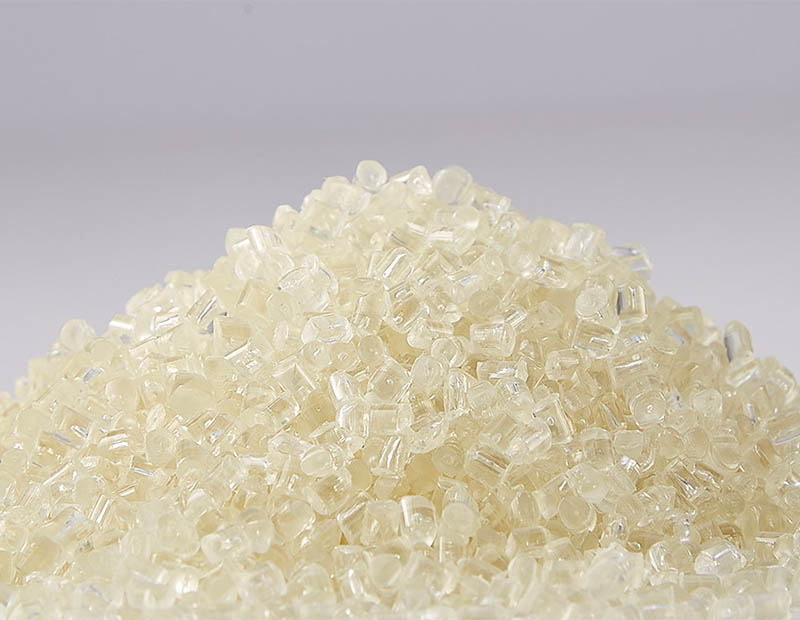Polysulfone (PSU) polymer is a High-performance thermoplastic known for its remarkable properties that make it ideal for a wide range of demanding applications. When compared to other common thermoplastics, such as polyethylene, polypropylene, and polycarbonate, PSU polymer stands out in terms of strength, temperature resistance, dimensional stability, and impact resistance. In this article, we will explore these advantages in detail and highlight why PSU Polymer is the preferred choice in industries requiring reliable, high-performance materials.

1. Strength and Durability
One of the primary reasons PSU Polymer is favored in demanding applications is its exceptional strength and durability. Compared to standard thermoplastics like polyethylene or polypropylene, which may deform under stress, PSU polymer maintains its mechanical strength under a wide range of temperatures and environmental conditions. This makes it suitable for use in high-stress environments such as automotive, aerospace, and medical devices, where materials must withstand constant wear and tear.
In particular, PSU Raw Materials offer superior tensile strength, allowing PSU polymer to retain its structural integrity even under heavy loads or when subjected to challenging conditions. This is a critical feature for applications like filtration systems, medical devices, and high-performance components in automotive or aerospace industries, where material strength is paramount.
2. Temperature Resistance
PSU polymer is known for its high thermal stability, which allows it to perform well even in extreme temperature conditions. It has a high glass transition temperature (Tg), typically around 180°C, compared to thermoplastics like polyethylene or polystyrene, which have much lower melting points and are prone to deformation at higher temperatures.
This heat resistance makes PSU Polymer an ideal choice for industries that require materials to endure elevated temperatures without losing their structural integrity, such as automotive fuel systems, industrial machinery, and electrical components. In contrast, common thermoplastics like polypropylene and polyethylene would soften or lose their strength under similar conditions.
3. Dimensional Stability
Dimensional stability refers to a material’s ability to maintain its shape and size over time, particularly when exposed to temperature fluctuations and environmental changes. PSU Polymer exhibits excellent dimensional stability, a characteristic that sets it apart from many other thermoplastics. Unlike materials such as polyethylene, which can expand or contract with temperature changes, PSU polymer maintains its shape under a variety of conditions.
This quality is particularly important in precision applications where parts need to maintain tight tolerances, such as in medical device manufacturing, aerospace, and filtration systems. The low thermal expansion of PSU polymer ensures that components retain their accuracy and fit, contributing to the long-term reliability of products.
4. Impact Resistance
While many thermoplastics are relatively brittle and can fracture under impact, PSU Polymer offers impressive impact resistance. This characteristic makes it suitable for use in environments where parts are likely to experience physical stress, such as in automotive, electrical, and medical applications.
Compared to thermoplastics like polycarbonate, which can crack under heavy impact, PSU polymer remains tough and resistant to breakage, even at low temperatures. This high impact resistance is beneficial in products like protective casings for electronics, automotive parts, and durable medical equipment, where safety and performance are critical.
5. Chemical Resistance
Another area where PSU polymer excels over other thermoplastics is its chemical resistance. PSU polymer is highly resistant to a wide variety of chemicals, including acids, bases, and solvents. This makes it ideal for applications in industries like water treatment, pharmaceuticals, and chemicals, where materials must be able to withstand exposure to harsh substances.
In comparison, materials such as polypropylene or polyethylene are more prone to degradation when exposed to certain chemicals. This robust chemical resistance of PSU polymer ensures that products maintain their integrity and function over time, even in corrosive environments.
6. Why PSU Polymer is the Preferred Choice
Due to its exceptional properties—such as strength, temperature resistance, dimensional stability, impact resistance, and chemical resistance—PSU Polymer is the preferred choice in applications where performance cannot be compromised. The ability to withstand harsh conditions without losing its form or function makes it an invaluable material in a variety of high-performance sectors.
In industries like aerospace, automotive, medical, and water treatment, materials need to perform reliably and consistently under challenging conditions. PSU Raw Materials, used in the manufacturing of PSU polymer, ensure the high quality and durability needed to meet the demands of these industries.
When compared to other common thermoplastics, PSU Polymer stands out as a superior material for applications requiring strength, high temperature stability, dimensional accuracy, and impact resistance. Its unique combination of properties makes it an essential component in industries that rely on advanced, durable materials for their critical systems. Whether used in medical devices, automotive components, or filtration systems, PSU polymer remains the top choice for engineers and manufacturers seeking long-lasting performance in demanding environments.






